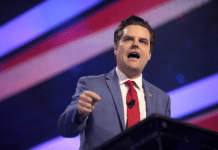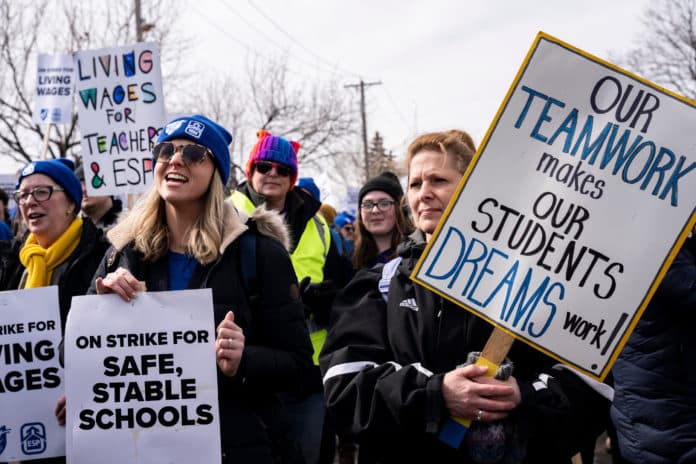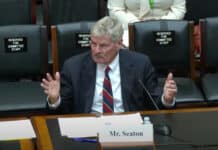The following is a transcript from this week’s episode of Minnesota Law Weekly, co-written by James Dickey and Doug Seaton of the Upper Midwest Law Center.
Today, we are discussing legal efforts to uphold government employee and taxpayer rights against government-employee unions, like the teachers unions.
First, a background to this story. Government-employee unions didn’t even exist in the United States before 1963. Former President Franklin Delano Roosevelt openly opposed government-employee unions while he was president, stating that the concept of government employees striking against the taxpayers to get more money from them was “unthinkable and intolerable.” FDR was, on the other hand, a strong supporter of private sector unions. In the private sector, unions were originally designed to organize employees to advocate for increased shares of corporate profits. But in the public sector, there are no profits. Unions simply band employees together to grab more of your tax dollars. As a result, government-employee unions are inherently undemocratic. Instead of representatives elected by taxpayers directing the wages and benefits to be paid for government employees, they are forced to negotiate with a union.
What are the results of this government union experiment? Expensive programs and failing results. Teachers union contracts make it nearly impossible to reward excellent teachers or fire failing ones. Union contracts are a big part of the reason we see levy after levy heavily promoted by government-employee unions to raise taxes more and more.
At the same time they want more tax dollars, they advocate for bad policies that hurt underprivileged students the most. Throughout the COVID-19 pandemic, Education Minnesota repeatedly pushed to keep schools closed and force distance learning, which doesn’t work for most students, and masks on students as young as kindergarten, who are least affected by COVID-19. This horrible set of priorities led to predictable results: studies have linked lockdowns to serious learning losses. And even worse, children’s mental health has worsened in a staggering fashion, with studies also linking the closure of schools to serious depression and anxiety problems for students. This politically motivated mistake has harmed children and will likely cost the United States billions of dollars in lost GDP. The teachers unions are largely to blame.
The problems don’t stop at learning losses from COVID-19 policies, though. The Minneapolis teachers union, as one glaring example, just this year forced a strike that shut down Minneapolis schools and likely caused significant harm to Minneapolis’ already struggling students. And what was the result of that strike? A tentative agreement with Minneapolis Public Schools to require that whenever teachers are laid off, white teachers must be fired first, and seniority and merit are no longer the first considerations for deciding who to retain. Unions like the Minneapolis teachers union are directly responsible for the continuing decline of Minnesota’s schools and the failure to serve those who need good schools the most.
But how do the unions stay in business, you may ask? It’s because for decades since they were allowed to form, state laws promoted by union advocates have forced government employees to pay dues to the unions, even if they disagree with their disastrous policies. Even if a person resigns from a government-employee union because they disagree with the union’s politics, they were forced to pay at least 85% of the full dues, right out of their regular paycheck, to line the union’s pockets.
That is, until June 2018. In June 2018, the U.S. Supreme Court decided a landmark case called Janus v. AFSCME Council 31. In that case, the court held that forcing government employees to pay dues to their union and thus fund their political actions was a violation of employees’ First Amendment rights against being compelled to speak. Now, in order for a union to take money from an employee, they must obtain a waiver of the employee’s First Amendment rights, usually in the dues deduction card. This means, for all you public employees out there, you do not have to pay dues to the union. And there is virtually no benefit to paying union dues — even if you are a nonmember, the government-employee union that bargains on behalf of your “bargaining unit” must represent you in the same way as any dues-paying member. That is called the duty of fair representation.
Upper Midwest Law Center has consistently advocated for government-employee rights to be free from their union. And we have also advocated for taxpayers to be free from forced subsidies of union political advocacy.
That is why we at UMLC have brought a number of lawsuits against government-employee unions on behalf of employees seeking to stop dues from being taken from their paycheck. We believe that once a government employee tells the union to stop, the union must stop. There never was any consent to deductions because these employees were forced into an unconstitutional choice of paying something to the union or being fired before the 2018 Janus decision. The unions have even claimed they can rely on forged signatures of government employees to take money from their paycheck. The unions have so far refused to stop their bad behavior, and we have taken them to court again and again to stand against the violation of First Amendment rights.
We have also stood up for taxpayers being forced to subsidize union political activity. We filed a lawsuit last year against the Anoka Hennepin teachers union because they forced a provision into their collective bargaining agreement with the school district that allows teachers to take hundreds of hours of paid leave to go campaign for the union’s preferred political candidates and tax levies. Instead of being in the classroom, these teachers are playing union politics with your tax dollars. And this costs the taxpayers sometimes over $500 per day, while the union only repays the substitute teacher rate of about $150. This means that you, the taxpayer, are being forced to pay for union politics. This is just wrong.
And on that front, we have a big victory to report. Just recently, on Aug. 11, we obtained a big win in the federal Eighth Circuit Court of Appeals against the Anoka Hennepin teachers union. We have established through our lawsuit that taxpayers to the school district have what is called “standing” to challenge this compelled political speech in federal courts. We believe the court’s approach showed that we are very likely to win the case against the teachers union and stop this illegal practice. We will continue to fight against unlawful government-employee union behavior on all fronts.
LISTEN:


















